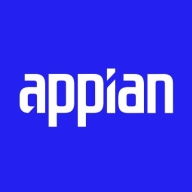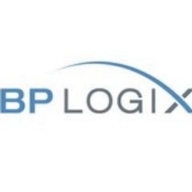

Appian and BP Logix Process Director compete in streamlining business processes. Appian holds the advantage with its comprehensive features, while BP Logix stands out for pricing and cost-effectiveness.
Features: Appian offers robust automation tools, extensive integration capabilities, and advanced analytics, appealing to organizations prioritizing comprehensive solutions. BP Logix Process Director includes innovative predictive analytics, process timeline functionalities, and foresight tools for strategic planning.
Ease of Deployment and Customer Service: Appian provides a flexible deployment model with solid support, reducing time to full operation. BP Logix Process Director offers both on-premises and cloud deployments, emphasizing ease and speed, complemented by quick implementation and notable customer service.
Pricing and ROI: Appian generally involves higher initial setup costs with potential for long-term ROI due to its comprehensive feature set. BP Logix Process Director presents a more cost-effective entry point, appealing to budget-conscious organizations with quicker perceived ROI.
| Product | Market Share (%) |
|---|---|
| Appian | 3.7% |
| BP Logix Process Director | 0.6% |
| Other | 95.7% |

| Company Size | Count |
|---|---|
| Small Business | 20 |
| Midsize Enterprise | 9 |
| Large Enterprise | 42 |
Appian is a unified low-code platform and solution used by businesses to build enterprise applications and workflows. This product adapts to the needs of clients and the technologies they are already using to combine their data in a single workflow and maximize resources. The platform has four main components through which it transforms the work process for companies of various sizes. They are:
Appian is utilized across a diverse set of industries, including automotive and manufacturing, energy and utilities, education, financial services, telecom and media, transportation, retail, insurance, healthcare, and life sciences. The most frequent use cases of Appian are customer journey, governance, risk and compliance, operational efficiency, supply chain, distributed order management, and environmental, social, and governance (ESG) management.
Appian Features
Appian has various features that allow users to create solutions for their businesses. These features can be separated into a few groups according to function, including automation, low-code application development, and integrations and data. Some of the most frequently used features of Appian include:
Appian Benefits
The benefits of using Appian include:
Reviews from Real Users
A practice leader - digital process automation at a computer software company values Appian highly because the product is easy to develop, low-code, and has a good user interface.
Alan G., an advisory board member at Codecon VR, Appian offers a clear application life cycle, easy to learn documentation, and comes with a fundamentals course.
BP Logix, a privately held company headquartered in San Diego, Ca., provides an intelligent business process management (BPM) and workflow platform for rapid development of digital business applications. The company’s products feature an innovative no-code/low-code interface, empowering “citizen developers”—business users—to rapidly configure custom applications. Hundreds of global organizations across every sector – government, non-profit, and commercial – have deployed BP Logix products and services, driving digital transformation and setting new benchmarks for agility, customer engagement, and speed to market.
Process Director from BP Logix is a BPM-driven, low-code/no-code platform for rapid development of digital applications. Process Director offers:
Programming is slow. Digital business is fast. Process Director helps you set the pace for your digital enterprise.
We monitor all Business Process Management (BPM) reviews to prevent fraudulent reviews and keep review quality high. We do not post reviews by company employees or direct competitors. We validate each review for authenticity via cross-reference with LinkedIn, and personal follow-up with the reviewer when necessary.